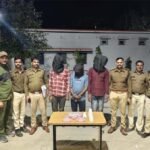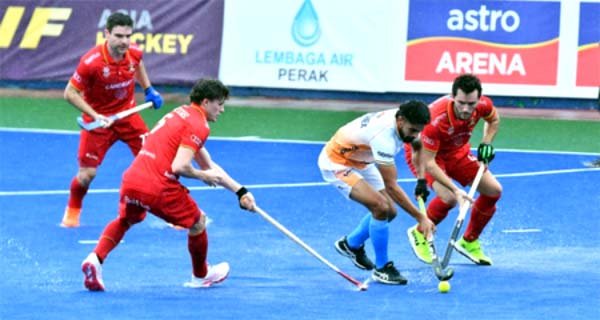New Delhi, Sep 24 (UNI) The Supreme Court today directed the National Investigation Agency (NIA) to submit detailed information on the custody of Kashmiri separatist leader Shabir Ahmed Shah in connection with 24 criminal cases, including terror funding charges.
A Bench comprising Justice Vikram Nath, Justice Sandeep Mehta, and Justice N.V. Anjaria passed the order while hearing Shah’s plea challenging the Delhi High Court’s June 12 decision denying him bail in a terror funding case.
The Court noted that the NIA’s counter-affidavit must include the custody status of Shah in other pending cases.
“Please provide us with the status of custody in other cases also. He is facing trial in probably 24 cases,” the Bench observed, granting the agency four weeks to file its affidavit. The matter will be heard next on October 31.
Shah, arrested by the NIA on June 4, 2019, is facing trial in a 2017 case linked to raising funds to disrupt public order and wage war against the Government of India.
The prosecution alleges that he played a “substantial role” in facilitating separatist and militant movements in Jammu and Kashmir, securing funds through hawala channels and cross-LoC trade, delivering inflammatory speeches, funding stone pelters, and glorifying slain militants.
Before the High Court, Senior Advocate Colin Gonsalves, appearing for Shah, argued that his client’s name appeared only in the second supplementary chargesheet and that the case relied on recycled video clips.
He contended that Shah’s speeches did not incite violence and that no overt acts were attributed to him, pressing for bail.
Opposing the plea, Senior Advocate Sidharth Luthra, for the NIA, maintained that there was sufficient material to prove Shah’s role in a conspiracy to destabilise India. Emphasising national security concerns, he urged that bail should not be granted.
The Delhi High Court, in its earlier order, had rejected Shah’s claim of free speech protection, holding that Article 19 rights cannot extend to inflammatory speeches or unlawful activities that threaten the integrity of the country.











